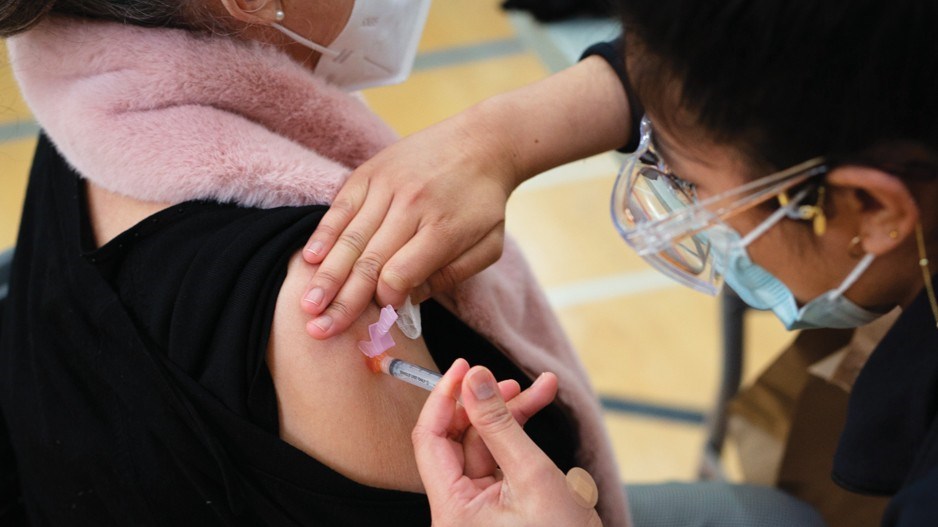COVID-19 booster shots will be provided to seniors in long-term care and assisted living starting next week, provincial health officer Dr. Bonnie Henry announced Tuesday.
“We know that our seniors and elders have carried a heavy burden,” Henry said. “And we continue to see cases [in long-term care homes].”
The risk of serious illness from COVID-19 is greater in seniors who live in long-term care and assisted living settings. There are outbreaks in about 21 seniors homes.
COVID vaccines began rolling out to those who live and work in seniors homes in December 2020 and January 2021. The COVID vaccine boosters will be given beginning next week in conjunction with high-dose influenza shots.
At the same time, the province is giving boosters to the first 15,000 of about 300,000 clinically extremely vulnerable individuals in B.C., with plans to phase in boosters for the remainder. That’s because people with blood cancers and organ transplants, for example, don’t develop the same immunity from vaccines as otherwise healthy people.
Health Minister Adrian Dix said 81.3 per cent of eligible people in the province are fully vaccinated with two shots but “we need to continue to do better.”
Henry revealed new modelling on Tuesday that shows those who are fully vaccinated have a 90 per cent reduction in their risk of being hospitalized with COVID-19, and the risk of being infected is reduced by more than 90 per cent for those who received mRNA vaccines — Pfizer and Moderna — and 70 per cent for those who received the “viral vector” vaccine AstraZeneca (now called Vaxzeviria).
People who received a mix of vaccines — a mRNA vaccine and viral vector vaccine — have the same protection as those who received two mRNA vaccine doses, said Henry.
“This is important and it’s good news,” said Henry. “It tells us that whether you got two doses of AstraZeneca, whether you got a combination of Pfizer and Moderna, Moderna-Pfizer, AstraZeneca-Pfizer, you are well protected.”
The protection level after four months for most people remains between 80 and 90 per cent, said Henry. Protection is stronger in individuals who had more than a six-week interval between first and second doses.
“Right now, we have very strong protection,” said Henry, adding that means boosters aren’t yet necessary for most people. “We’re going to continue to monitor that as we continue to follow the studies that are being done by the vaccine manufacturers about what is needed in regards to the future.”
Dix and Henry continued to appeal to the unvaccinated to get their shots amid what’s now called a “pandemic of the unvaccinated.” “Simply put, we need more people to get immunized,” Dix said.
> Online: gov.bc.ca/getvaccinated



